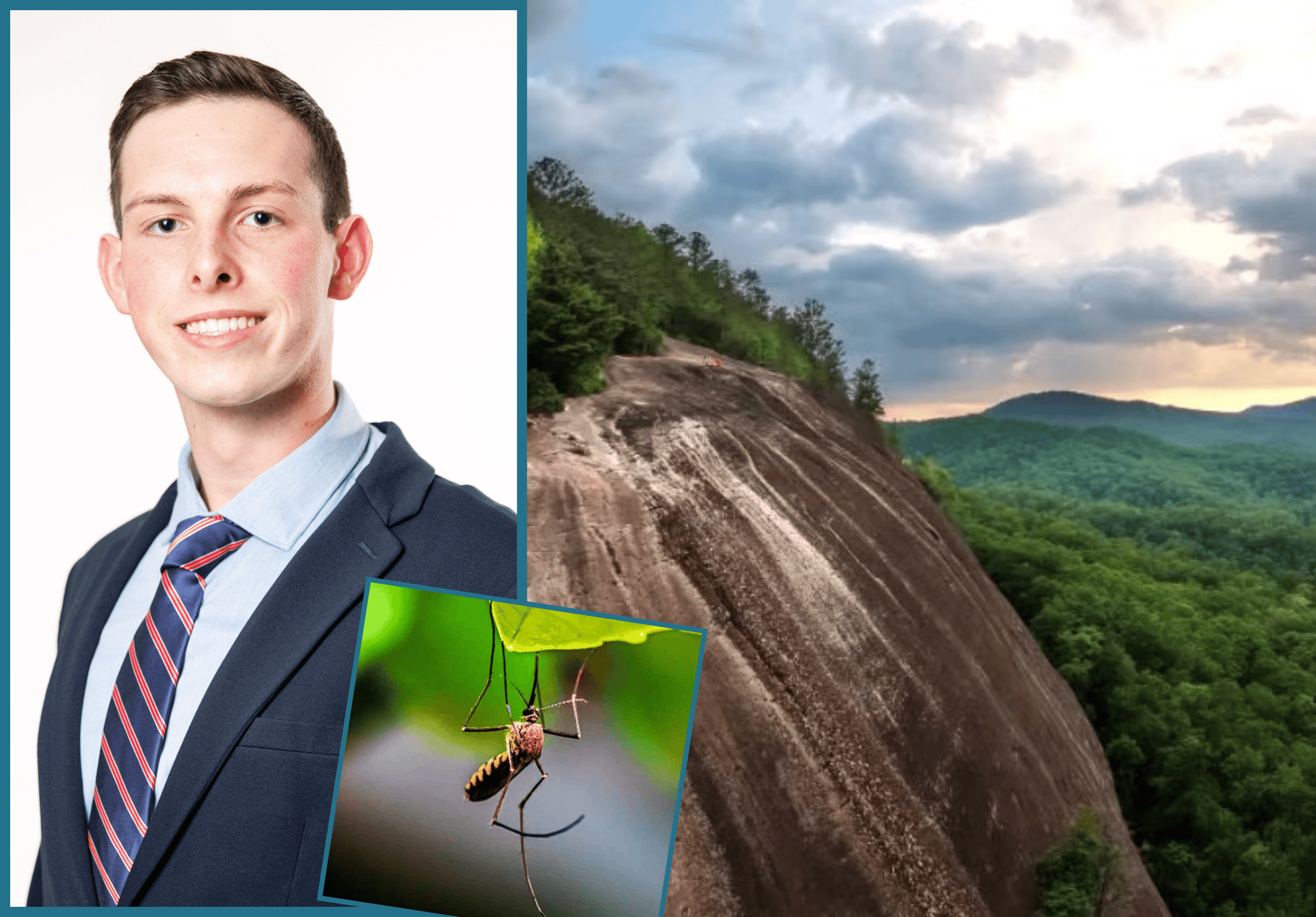
Silas Durham ’27 describes his 2024-2025 internship with the North Carolina Collaboratory.
By Silas Durham ’27, North Carolina Collaboratory, posted on unc.edu on October 22, 2025.
When I received my first research assignment in an interdisciplinary English composition and rhetoric class, I chose something that hit close to home: the La Crosse virus, Appalachia’s neglected pediatric disease.
La Crosse is a mosquito-borne virus that disproportionately afflicts children in regions of Appalachia, especially western North Carolina. The virus has been prevalent in isolated regions of the United States for over sixty years, yet little has been done in the way of public health intervention or clinical research for the disease. Coincidentally, I learned that one of the leading researchers of the La Crosse virus, Dr. Ross Boyce, works at UNC–Chapel Hill.
Dr. Boyce is a physician and researcher of the epidemiology of vector-borne diseases with over a decade of experience fighting malaria in rural Uganda. He was gracious enough to agree to an interview for my research project. When we met, his zeal for his research and the La Crosse virus immediately came through.
The first thing he spoke about was his patients, children who had contracted the disease, and their families. While the disease is rarely fatal, it can cause severe side effects in patients, such as encephalitis (inflammation of the brain) and seizures, and lead to hospitalization. Dr. Boyce hopes to provide a clinical perspective as he and his colleagues work to bring attention and investment toward better diagnostics, treatments, and ways to target the mosquito vectors themselves. Following our meeting, Dr. Boyce offered me the opportunity to work under him at the Infectious Disease Epidemiology and Ecology Lab.
Contributing to projects in the lab
The first semester, we worked to develop resources for the remote Epidemiology to Elimination study, funded by the North Carolina Collaboratory, that aimed to improve the effectiveness of clinical care for patients and reduce disease transmission. This project is in partnership with researchers at Western Carolina University.
The resources, including a self-administered blood collection device, mosquito traps, and a home environmental risk assessment, can be mailed to remote study participants outside the state of North Carolina. The data we collect will help us better understand the clinical spectrum and geographical risk factors for the disease. Through this process, I have been privileged to hear many patient testimonies. Most of them expressed altruistic motives for enrolling in the study, saying they don’t want the virus to impact other children and families in their community.
The second semester, I worked in the lab learning and performing lab techniques, such as immunofluorescent assays to test patient serums for Rickettsia antibodies and dried blood spot punching, followed by DNA extraction to screen for malaria. I even had the opportunity to assist in a research study analyzing the most effective “bait” for tick traps. Effective tick trapping is important for analyzing disease vectors within tick populations.
This is especially important in North Carolina, as ticks are the primary transmitters of the Rickettsia bacteria, a prevalent disease-causing agent in the state. While carrying my sublimating cauldron of dry ice (a particularly enticing substance for the bloodsucking arachnids) around the public location of our study, I drew some stares from curious onlookers. I even had the opportunity to educate some community members on the purpose of our study, tick identification, and ways to keep themselves and their families safe.
Over the past year, I have discovered how personal research can be. Working to bring awareness and better resources to diseases that affect my home region has been incredibly rewarding. I’ve also witnessed how research can have a direct impact on a community by facilitating community education and implementing evidence-based methods to keep the community safe.


